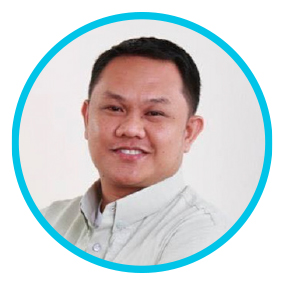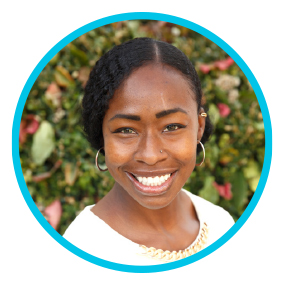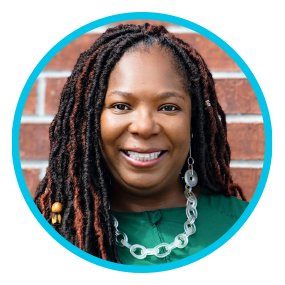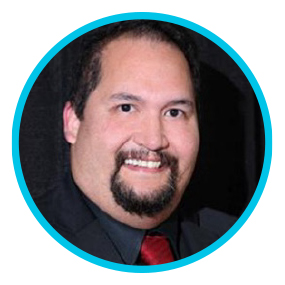2023 Winners
Shell Urban Science Educator Development Award

Roy Basa
CTE/Science Teacher
Twin Buttes Cyber Academy
Zuni, New Mexico
Roy Basa’s classroom activities are student-centered and hands-on. He believes in a “learning by doing” kind of philosophy. Most of his science activities are project-based, such as making fatty acid methyl esters from selected plant seeds as an alternative biofuel, which won the 2022 New Mexico Governor’s STEM Challenge in 2022. His students also make motors and generators, solar panels, simple robots, and windmills. During these projects, students feel ownership and become inspired to do more and to learn more.
Basa also collaborated with authorities in his community by bringing science students to the Indian Hospital Service to undergo training and a hands-on workshop with medical doctors and nurses. Students learned about first aid, basic radiology, ophthalmology, nutrition, and dietetics, etc. He helps students with career connections by inviting resource persons from the hospital and fire department in the Zuni community to train students on emergency response procedures. At the NSTA conference, Basa looks forward to learning about effective approaches, methods, styles, and techniques of teaching science. After the conference he will share his learnings with students, colleagues, and his community in the reservation area of Zuni, New Mexico, and possibly to other states.

Briana Clarke
Middle School Science Teacher
Envision Academy High School/Park Day School
Oakland, California
Briana Clarke has a passion to diversify the next generation of STEM professionals. For the last seven years, she has taught physics and engineering design to BIPOC students using her philosophy of project-based curriculum and learning in groups. She frequently used PhET simulations because of lack of materials and wrote labs to pair with them, which transformed into a published curriculum, Physics4All.
Continuing her mission, she wrote Chemistry4All, Physics4All Jr. Edition, and Physics4All mini-series to serve fifth through twelfth grade. PhET then hired her to help make STEM more accessible for underrepresented students around the country. She has also written numerous grants for solar panel kits, arduino microcontrollers, and engineering materials. She created a project, Improve Oakland, where students analyze access to public transportation and traffic in their area.
Clarke now teaches at Park Day School, which serves a racially and socioeconomically diverse student population. Students analyze access to healthy food, medical care, and animal rights as she’s built out her social justice–based, seventh-grade curriculum. At the NSTA conference Clarke is looking forward to building a stronger network and being in an incubator space, creating a larger impact at NSTA. As a lifelong student, she will engage in hands-on experiences that keep her class up to date.

Sharon Delesbore
Dean of Instruction P-Tech Health Science Program
Hightower High School
Missouri City, Texas
Sharon Delesbore’s work in science education began in 1996 as a life science teacher. Her move into leadership in science education came from a need to see decision makers who represented her and understood the need to bring opportunity to students without advocates. Teaching led her to science department chair and district science leadership. At her first NSTA conference, she learned about the Association for Multicultural Science Education and she has been supporting teachers and students of color in science education ever since.
Delesbore has always kept her “teacher’s perspective” in the forefront of her decision-making, participating as an NSTA Alliance of Affiliates representative and becoming the current president of the Association for Multicultural Science Education. Through these national leadership roles, she has presented quality professional development content advocating for diversity, equity, and inclusion in science education.
Delesbore is currently Dean of the Hightower High School P-Tech Health Science Program and is excited to return to the classroom setting by supporting teachers, Houston Community College professors, and students as they pursue an associate’s degree in medical assisting along with their high school diploma. At the NSTA national conference, she is looking forward to professional development sessions and re-establishing face-to-face meetings.

Richard Embrick
STEM Teacher
David Crockett Middle School
Richmond, Texas
In 2009, Richard Embrick began working at an underperforming school as an eighth-grade science teacher. His persuasive ability helped him become an effective educator in engineering as well as building and running a program to support thousands of students districtwide. He also works at the national level with the Innovative Collaborative and NSTA to encourage more minority students to pursue STEM careers in Texas.
In 2013 he developed the first Robotics & Engineering course in middle school for FBISD, one of the largest and most diverse districts in Texas, that focused on bringing STEM learning to non-traditional STEM students. He accepted a dual role as an engineering teacher at Crockett Middle School and the STEM Robotics Facilitator for FBISD. In this role, he mentored and trained new STEM teachers in the district to support 15 middle school campuses.
Embrick wrote and won multiple education grants, taught teachers how to implement project-based learning, and helped transition lessons from teacher-centered to student-centered. He has facilitated coding workshops for teachers in the district to support summer STEM programs and continues to grow female participation in STEM. At the NSTA conference Embrick hopes to attend workshops that integrate story-based PBL lessons that will help him develop more effective lessons.

Cecelia Gillam
Science Teacher
Hahnville High School
Boutte, Louisiana
Cecelia Gillam is a 17-year veteran science teacher having taught in various subject areas such a physical science, biology, chemistry, and environmental science. As an environmental science teacher she has networked with other teachers to bring equitable outcomes for her students. She recently participated in a workshop through the Lake Pontchartrain Conservancy where she learned how to conduct water quality testing, which led to more hands-on experiences for her students.
Gillam partnered with the Algae Institute to teach students how algae impacts the environment. She has also partnered with NEED to bring in guest speakers so students learn how they can contribute to society through energy conservation efforts. A grant award allowed students to study closed ecosystems by using glass terrariums to build ecosystems.
Gillam serves as the Region I Representative for the Louisiana Science Teacher Association, and is currently working on her doctorate in Educational Leadership with a concentration on STEM. She serves as a mentor for new science teachers through the Louisiana Department of Education. She also serves as a committee chair for the Teacher of Color Committee for her district, recruiting and retaining STEM teachers. At conferences she learns many innovative ways to reach students and give students access to real-world relevant experiences.

Maritha Green
STEM/Biology Teacher
Whidby Elementary School
Houston, Texas
Maritha Green began her science education experience in 2011 supporting fifth-grade science. She worked three summers at the Health Museum in Houston, Texas, teaching Savory Science, Little Chefs Academy, and Grossology. She taught fifth-grade science for five years where she exposed students to various hands-on activities—including force and motion, matter, electrical circuit, ecosystem, inherited traits—making a connection to real-world experiences.
Green is now the campus Bio Lab/STEM teacher where she teaches scholars about the engineering design process, which allows them to use creativity to plan, create, design, and identify ways to improve their learning. As a STEM teacher she motivates students to think outside the box to identify and solve problems to everyday engineering challenges. Her students have built a marshmallow bridge, and completed egg drop, elevator, and water tower challenges. A bio lab supports campus health science magnet programs where students do activities and learn about how the human body works. Many of Green’s students are drawn to the health science field; her ultimate desire is to inspire the next generation of health care professionals and engineers.


